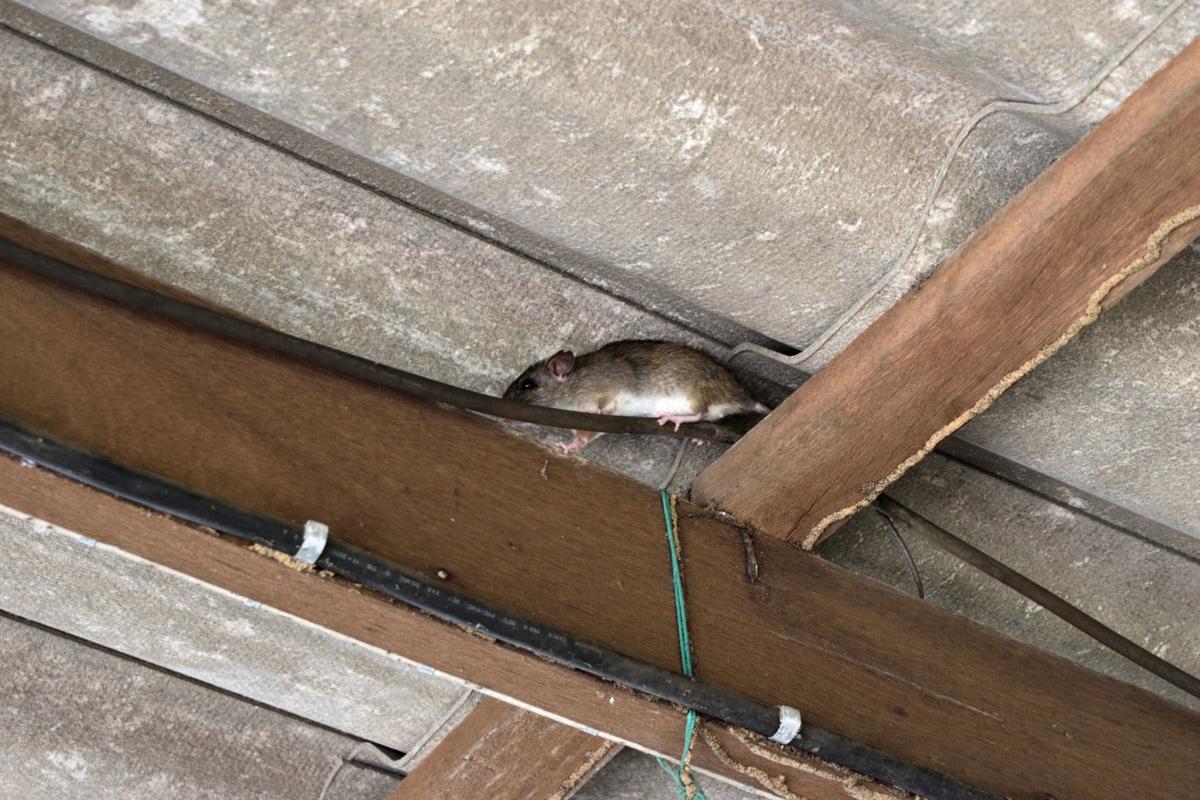Question: I have an influx of creepy crawlies at my house. What can I do to keep them at bay?
Answer: Rosie advises that one of the best ways to keep bugs and critters at bay is by caulking and sealing any openings and cracks on the outside of your home. Make sure to buy clear caulk designed for exterior use so it expands and contract as temperatures change.
Q: What insects do I need to watch for?
A: Crickets are prolific in the desert т they love the dry heat. They especially love damp leaf litter so keep it picked up. If you have little geckos running around, keep them. They will help eliminate crickets for you. Scorpions also love crickets, therefore having a cricket problem can lead to a scorpion problem.
Scorpions love the night and hiding under things. The scorpion we see here in the desert southwest is the bark scorpion. Their sting can be fatal if a person is allergic to their venom. But for most, the sting is just terribly painful. Use a black light at night to check your house and yard for them.
People are also reading…
Black widow spiders have adapted well to УлшжжБВЅ. УлшжжБВЅ is a hot spot for black widow spiders. You will generally find them lurking in dark places no more than 2 feet above the ground. Some common places they like to hide are garages, outdoor storage units and behind pool equipment. Watch for irregular spider webs. Clear the webs with a broom and check the area for spiders. When spiders hatch, they throw out a thread allowing them to travel.
Consider hiring a pest control company to inspect the house and treat on a regular basis. Choose a company that checks in with you each month and offers a visual inspection while they are on the property. You can choose to have the inside or outside of the home sprayed, or both, depending on the critter issues you are having at the time.
Q: What kinds of rats do we have in the desert?
A: Two common rats around homes are pack rats and roof rats. They do not eat or live the same way.
Pack ratsт nests are a jumbled mess of twigs and brush and are generally found under bushes and trees. Pack rats have a fondness for unused vehicles. They will move in and eat everything from the underside of the vehicle but the metal. Check your parked vehicle regularly. To win this battle, you will have to clear out the nests and watch for their return.
Signs of roof rats include gnawed out fruit from your trees and greasy spots on walls where they have traveled. Roof rats like to travel high off the ground. Sounds of scrambling or gnawing in the attic are common. To keep rats off of your roof and out of your attic, trees and bushes should be trimmed away from the house. Eliminate their food source by picking ripe fruit from trees and from the ground. It is a good idea to pick up pet food bowls when Fido is done eating as well.
Q: Is there any hope for keeping wasps and bees from getting to close to my family and pets?
A: You have some choices to make when a beehive arrives in your yard. Occasionally, a beehive will come swarming into a yard late in the day and settle in a tree. Try leaving them for a day. Often, they will set off on their journey the very next morning. If a hive looks like it has decided to move in and is in a place that it will be easily disturbed, consider having a beekeeper remove and relocate it. If a beehive is well established and in a hard place to reach like in a wall or near a pool high in a tree, your best bet will be eradication. If it is determined that the bees are Africanized, then the only choice will be eradication due to their tendency to be aggressive.
Paper wasps are our most common wasps. They love hanging out around the pool. Hive removal is one way to get rid of wasps. Discouraging them is the other way. One deterrent that seems to work is algaecide applied to the pool water (as per directions). Anti-static cloths by the side of the pool for deterring and diesel fuel poured into a plastic water bottle and hung from a tree to draw them away might be worth a try.
In general, the best way to keep your yard and home from being overrun with critters is to deny them a place to hide. Keeping debris and clutter to a minimum will go a long way.
Rosie Romero is the host of the Saturday morning тRosie on the Houseт radio program, heard locally from 10тtoт11 a.m. on KNST (790-AM) in УлшжжБВЅ.













